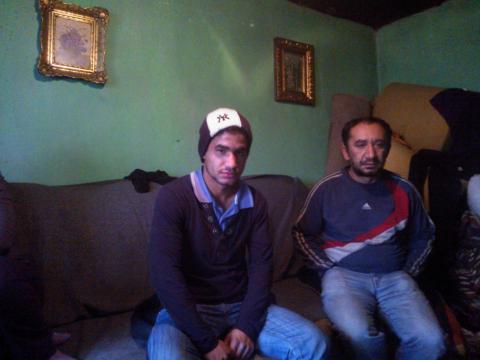“It is like he does not exist”

Armin, 20, has never been to a doctor’s office, but not because he has never been ill. He has also never been to school, but not because he has no interest in education.
Armin was born at home and his birth has never been registered. Without a birth certificate, he is unable to access basic human rights such as education and health care or the ability to participate in civic life in Bosnia and Herzegovina. “I did not have the ability to register his birth” explains Armin’s father, Sadik. “My wife got sick at that time and I had to go to work, so everything lagged”.
Soon weeks, months and years passed.
The complex procedures for registering children after the statutory 15 day period from the date of birth coupled with poverty and the low social status in the Roma community Armin and Sadik are members of made the situation more difficult, as well. To make matters worse, high levels of Illiteracy among the many Roma make it difficult for them to obtain and fill out documents, if they are even able to find out what the necessary steps are.
“It is like he does not exist,” says Sadik, looking at his son, as they sit in a dimly lit room.
“The worst thing is that I don’t have any documents. I can’t go anywhere, I can’t do any work,” adds Armin.
Just recently, Armin and Sadik started the procedure for his registration. On their way to obtaining access to some of the most basic human rights, they are helped by Roma community mediators through ROMED, the Council of Europe’s programme that uses mediation as basis for improving living conditions of tens of thousands Roma people in Bosnia and Herzegovina. A 2010 government survey showed that up to 10% of Roma in BiH lack birth certificates, citizenship registration and other essential documents needed to prove their citizenship and gain access to basic rights and services.
ROMED is being implemented in seven municipalities in Bosnia and Herzegovina by World Vision and its partner Roma Association Romalen, since November 2013.
Mediation consists of employing people from local Roma communities to act as mediators between Roma and the public institutions on the various issues of employment, healthcare and education.
Junuz and Samra have been working as mediators in Roma communities where Armin and Sadik live for more than a year and have went through extensive training. “We worked with 90 per cent of the population here,” says Junuz. “Whenever they need some documents, they come to us because most of them are illiterate. We then help them get documents they need,” he adds.
Both of them are very proud of the work they do. “We managed to register one 65-year old recently,” reveals Junuz adding: “We can do it for Armin as well”. His colleague, Samra, is a bit more cautious. “It will be difficult” she says.
The process will be long and complicated, but it will provide Armin with basic human rights he never had access to and potentially provide his access to a road for a better future.